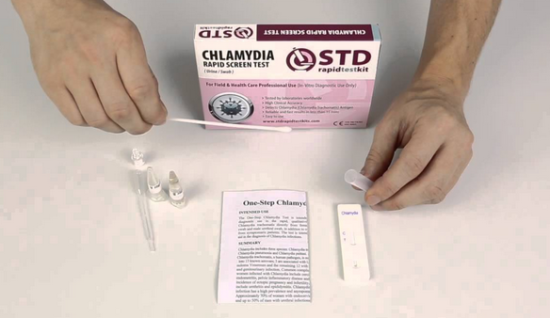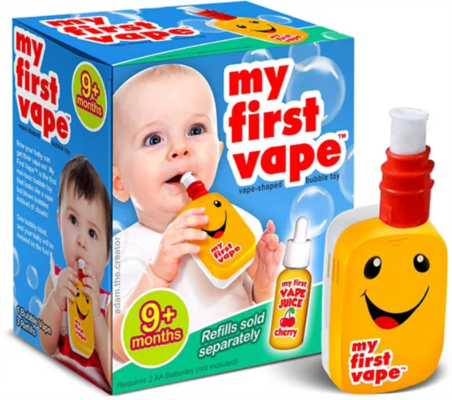Georgia moves on Medicaid, monkeypox’s female problem, home STD tests, and more
19 Nov 2022
Posted by Andrew Kantor
STI … or monkeypox?
For women, it can take longer to get a diagnosis of monkeypox, because they account for a much smaller number of infections (so far). As a side note — and a possible peek at the future — in contrast to men, a quarter of women’s* monkeypox infections do not come from sexual contact.
Because it’s unexpected, monkeypox in women is often diagnosed as a different STI/STD, leading to delays in treatment.
* Interestingly, this only applies to people born female, not those who transitioned. Trans women, like men, acquire monkeypox almost exclusively through sexual contact.
Georgia’s sort-of Medicaid expansion approved
The Biden administration has tacitly allowed* Georgia to move forward with a plan to have work requirements for Medicaid coverage — making it the only state in the country to do so.
Well, not exactly work requirements; they’re actually “qualifying activities” according to the Department of Community Health, including self-employment, job training or “readiness assistance,” community service, or attending higher or vocational education.
The good news is that it means more Georgians might be eligible for coverage (although the only other state to ever run such a program, Arkansas, saw coverage drop).
The bad news is that it will cost the state more to insure people, as the federal government will only cover 67% of the cost, as opposed to 90% under ‘standard’ Medicaid expansion.
At least, that’s all on paper. There are many questions remain that won’t be answered until the program rolls out and data comes in.
Disclaimer: GPhA does not have a position for or against Medicaid expansion.
* It decided not to appeal the latest court ruling, which had approved the plan.
Be prepared for the fruitcake
(and other unwanted gifts)
What do you want for the holidays (besides world peace)? How about … an infectious disease? How about four new CE courses all about infectious diseases?
Good news! GPhA just launched the Unwanted Gifts Series — our holiday webinar series focused on how pharmacists and technicians can help prevent the spread of those unwanted gifts.
Get this: Each course is a mere $20 for GPhA members*!

Disgusted girl holding a gift in her hand
What topics, you ask?
- HIV PrEP
- Monkeypox
- Antimicrobial stewardship
- Expedited partner therapy
The webinars run Tuesdays from November 29 through December 20. Check out the details and sign up today at GPhA.org/unwanted!
* $45 for non-members
Cholesterol med: best of both worlds
What if there was a medication for lowering cholesterol that was as easy to take as a statin, but as fancy as a PCSK9 inhibitor? Well guess what‽ Researchers out of Case Western have created a pill “that reduces PCSK9 levels and lowers cholesterol in animal models by 70%.”
“Statins only lower cholesterol so far. This is a drug class that we think would represent a new way to lower cholesterol, a new way to hit PCSK9.”
How so? By using nitric oxide. Sure, they already knew it could inhibit PCSK9, but their drug makes it work even better. In mice, at least. As always, more research is needed.
Another Lantus switcheroo
The FDA has approved Eli Lilly’s insulin biosimilar Rezvoglar for at-the-counter interchangeability with Sanofi’s Lantus.
Lantus runs about $300 for 10 ml (in the US); Rezvoglar’s price hasn’t been set.
We have to call this out
“Aside from public and political pressure, diabetes drugmakers themselves are now calling for the need to control the medicine’s cost.” That’s right — the drugmakers who set the prices are saying that prices should be lower. Gosh, any idea who could do that?
The future of home STD kits
Except for HIV, there are no FDA-approved at-home tests for STDs, while the nation is dealing with an all-time high in infections. Those two facts lead to two related stories (conveniently in a single KHN article):
First, health pros are pushing for that to change — with health departments overwhelmed, it’s critical to get more people tested and treated quickly, they say.

Second, despite the lack of FDA approval, three states (Alabama, Alaska, and Maryland) will mail tests to residents, and CVS even sells one (of questionable legality) over the counter; you can also buy them online. In all these cases, patients need to collect samples and send them to an outside lab, and not every lab will process them because of the lack of the FDA’s blessing.
Still, you don’t need Aunt Zorya’s tarot cards to see where this is headed — it’s just not clear how long it will take the FDA to give the go-ahead.
When it comes to vapes, the FDA says “No kidding”
The FDA has made it clear that it doesn’t want vapes marketed at kids. Companies that make devices shaped like a Game Boy* (the Wizman Puffboy, if you’re curious) or that have a “Family Guy” theme are gonna have a hard time arguing that’s not what they’re doing.

Now the the agency has sent formal warnings to the companies, although it may need to do more — at least one company “briefly stopped selling its product, but then quietly began selling it again.”
* Do kids today even know what a Game Boy is? Wouldn’t a Switch have made more sense?
Privacy on the docket
When the next Congress congresses, one thing both sides sorta-kinda agree on is healthcare privacy — expanding it, that is. They might have different reasons, but the common goal will be to expand HIPAA and HIPAA-like privacy protections.
The gaping hole: HIPAA applies only to health care providers, insurers, and data clearinghouses, not to any of the gadzillion apps that collect, track, and share health data … with or without the user’s consent.
As one trade group spokesman put it, “There’s gonna be an explosion [of legislation] in the new Congress.”


